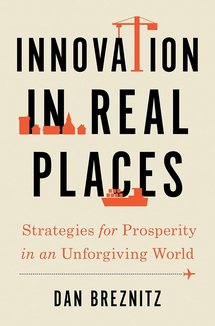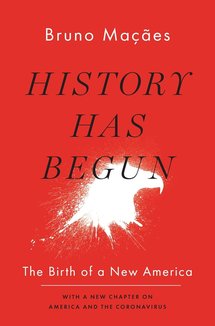Recommended Books

Innovation in Real Places: Strategies for Prosperity in an Unforgiving World
Author:
Dan Breznitz
ISBN 13:
978-0197508114
Winner of Balsillie Prize for Public Policy Winner of Donner Prize A challenge to prevailing ideas about innovation and a guide to identifying the best growth strategy for your community. Across the world, cities and regions have wasted trillions of dollars on blindly copying the Silicon Valley model of growth creation. Since the early years of the information age, we've been told that economic growth derives from harnessing technological innovation. To do this, places must create good education systems, partner with local research universities, and attract innovative hi-tech firms. We have lived with this system for decades, and the result is clear: a small number of regions and cities at the top of the high-tech industry but many more fighting a losing battle to retain economic dynamism. But are there other models that don't rely on a flourishing high-tech industry? In Innovation in Real Places , Dan Breznitz argues that there are. The purveyors of the dominant ideas on innovation have a feeble understanding of the big picture on global production and innovation. They conflate innovation with invention and suffer from techno-fetishism. In their devotion to start-ups, they refuse to admit that the real obstacle to growth for most cities is the overwhelming power of the real hubs, which siphon up vast amounts of talent and money. Communities waste time, money, and energy pursuing this road to nowhere. Breznitz proposes that communities instead focus on where they fit in the four stages in the global production process. Some are at the highest end, and that is where the Clevelands, Sheffields, and Baltimores are being pushed toward. But that is bad advice. Success lies in understanding the changed structure of the global system of production and then using those insights to enable communities to recognize their own advantages, which in turn allows to them to foster surprising forms of specialized innovation. As he stresses, all localities have certain advantages relative to at least one stage of the global production process, and the trick is in recognizing it. Leaders might think the answer lies in high-tech or high-end manufacturing, but more often than not, they're wrong. Innovation in Real Places is an essential corrective to a mythology of innovation and growth that too many places have bought into in recent years. Best of all, it has the potential to prod local leaders into pursuing realistic and regionally appropriate models for growth and innovation.

History Has Begun: The Birth of a New America
Author:
Bruno Maçães
ISBN 13:
978-0197528341
Popular consensus says that the US rose over two centuries to Cold War victory and world domination, and is now in slow decline. But is this right? History's great civilizations have always lasted much longer, and for all its colossal power, American culture was overshadowed by Europe until recently. What if this isn't the end? In History Has Begun , Bruno Maçães offers a compelling vision of America's future, both fascinating and unnerving. From the early American Republic, he takes us to the turbulent present, when, he argues, America is finally forging its own path. We can see the birth pangs of this new civilization in today's debates on guns, religion, foreign policy and the significance of Trump. Should the coronavirus pandemic be regarded as an opportunity to build a new kind of society? What will its values be, and what will this new America look like? Maçães traces the long arc of US history to argue that in contrast to those who see the US on the cusp of decline, it may well be simply shifting to a new model, one equally powerful but no longer liberal. Consequently, it is no longer enough to analyze America's current trajectory through the simple prism of decline vs. progress, which assumes a static model-America as liberal leviathan. Rather, Maçães argues that America may be casting off the liberalism that has defined the country since its founding for a new model, one more appropriate to succeeding in a transformed world.

The Hall of Uselessness: Collected Essays (New York Review Books Classics)
Author:
Simon Leys
ISBN 13:
978-1590176207
An NYRB Classics Original Simon Leys is a Renaissance man for the era of globalization. A distinguished scholar of classical Chinese art and literature and one of the first Westerners to recognize the appalling toll of Mao’s Cultural Revolution, Leys also writes with unfailing intelligence, seriousness, and bite about European art, literature, history, and politics and is an unflinching observer of the way we live now. The Hall of Uselessness is the most extensive collection of Leys’s essays to be published to date. In it, he addresses subjects ranging from the Chinese attitude to the past to the mysteries of Belgium and Belgitude; offers portraits of André Gide and Zhou Enlai; takes on Roland Barthes and Christopher Hitchens; broods on the Cambodian genocide; reflects on the spell of the sea; and writes with keen appreciation about writers as different as Victor Hugo, Evelyn Waugh, and Georges Simenon. Throughout, The Hall of Uselessness is marked with the deep knowledge, skeptical intelligence, and passionate conviction that have made Simon Leys one of the most powerful essayists of our time.